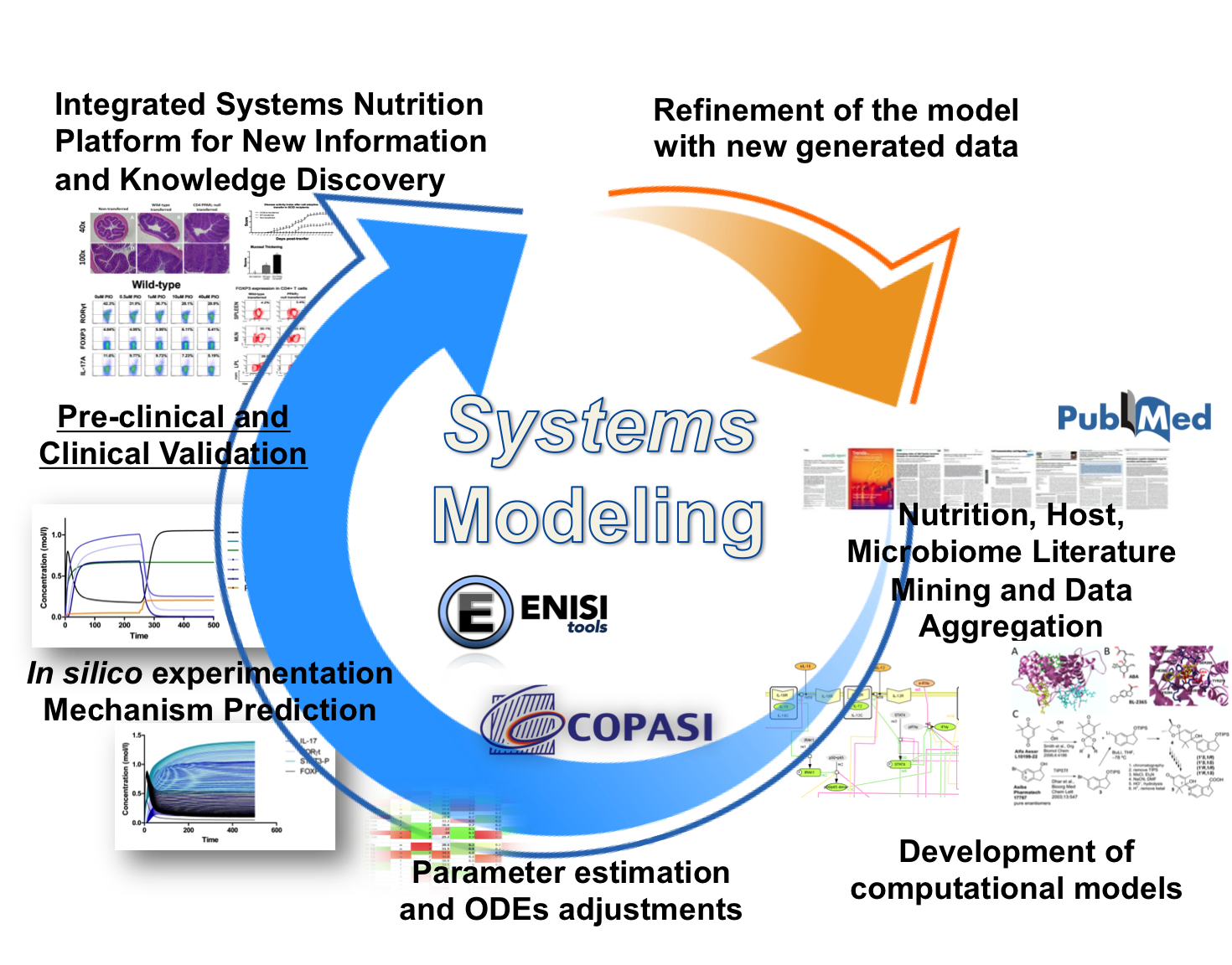NIMML Defines Grand Challenges in Nutrition Science for 2015-2020

The NIMML team has recently participated in an international effort aimed at defining the Goals of Nutrition Science for 2015-2020 to be published in Frontiers in Nutrition.
Nutrition science is evolving from reductionist approaches centered on the study of single molecules and pathways out of context to quantitative analyses of massively interacting systems involving complex nutrition, microbiome and the host networks that delineate health outcomes. Transdisciplinary (computational, clinical and experimental approaches) that integrate modeling, big data analytics and portal science and enable information processing representations of nutritional mechanisms regulating health outcomes are required to meet the Grand challenges of the 21st Century Nutrition Research and Discovery.
MIEP has pioneered the development of disruptive information biology technologies driven by high performance computing (HPC), wet lab and omic data analytic capabilities, and large complex systems modeling. Computational modeling guides and underpins experimental research from computational hypothesis generation to data analytics, and from molecular science to accelerating the path to cures for human diseases. MIEP’s systems modeling and supervised machine learning approaches can be deployed to engineer information processing representations of nutritional processes for advancing a systems-wide understanding of the nutritional mechanisms underlying the modulation of health outcomes.
About NIMML
The NIMML Institute is a 501 (c) (3) non-profit public charity foundation focused on a transdisciplinary, team-science approach to precision medicine at the interface of immunology, inflammation, and metabolism. The NIMML Institute team has led numerous large-scale transdisciplinary projects and is dedicated to solving important societal problems by combining the expertise of immunologists, computational biologists, toxicologists, modelers, translational researchers, and molecular biologists. The Institute is headquartered in Blacksburg, VA. For more information, please visit www.nimml.org or contact pio@nimml.org.
